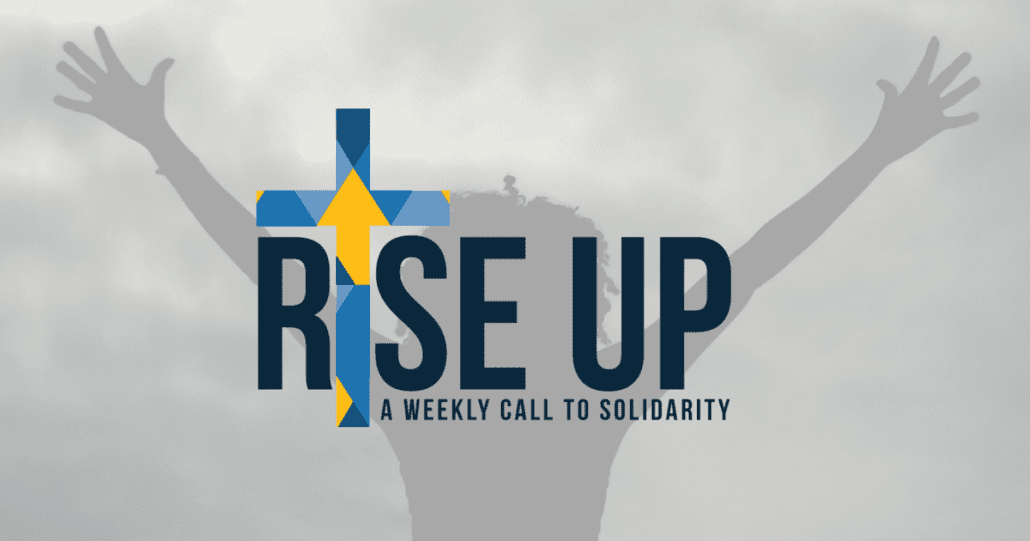Prophetic Love in the Public Sphere
BY ERIN MCDONALD, C.S.J. | February 25, 2019
Sunday’s Readings

“Don’t judge. Love your enemies. Stop condemning and you will not be condemned.”
Over the past several days I have prayed with these words and repeated them to myself in hopes of receiving some form of Divine inspiration. However, they didn’t seem to invoke a radical response. I think I’ve heard these phrases so often that they seem to lack the powerful spark they probably held for those who heard Jesus speak them. So I asked myself, what are the ways in which these words could transform my heart in a prophetic way? If Jesus spoke them to me today, to whom might he be referring?
Jesus’s powerful words feel so needed in our political life today. It doesn’t take much to experience the name calling, virtue-signaling, judgment, and pervasive negativity that has become commonplace in our toxic political discourse. Our divisive political climate seems to encourage anger, blame, and indifference to each other’s fears and suffering. However, Jesus commands us to go against the grain. He commands prophetic unioning love, forgiveness, and compassion.

If I’m really being honest with myself, I, too, can slide into a moral superiority which can lead me to judge and condemn my neighbor for their political perspectives. In these moments, I fail to see that I am filling my own heart with the same anger and division which I am condemning in my neighbor.
I have heard stories of friendships and families being fragmented by political strife. It is here, in the intersection of politics and relationships, where I need to allow Jesus’s powerful words to challenge me to regulate my emotional alarm system and my self-righteousness so I can engage in civil public discourse about the critical issues of our time. I do not need to compromise my values or political beliefs to truly listen lovingly and openly to my neighbor.
We are called to engage the critical issues of our time. As people of faith, we are called to be disciples of love, inclusivity, reconciliation, and equality.
For Reflection:
- Where can I grow in awareness of my own moments of judgment and condemnation of my neighbor?
- How can I be a catalyst for unioning love in places of political discourse?
- Can I practice better emotional management in difficult conversations?
Erin McDonald, CSJ, is a Sister of St Joseph and the university minister for service and social justice at the University of Detroit Mercy. She holds degrees from Wheeling Jesuit University, West Virginia University, and Loyola University New Orleans. She previously served as director of the Service for Social Action Center at Wheeling Jesuit University, as a humanitarian aid worker for Jesuit Refugee Service in Rwanda, and as a social worker at Freedom House, a shelter in Detroit, Michigan, for survivors of torture and persecution who are seeking asylum in the U.S.









Life is a dynamic process. Condemnation and judgment used to be weapons of the weak.
I would love to read more practical advice and tips on this topic. One idea for active listening that our priest shared with us this week was waiting five seconds before responding.